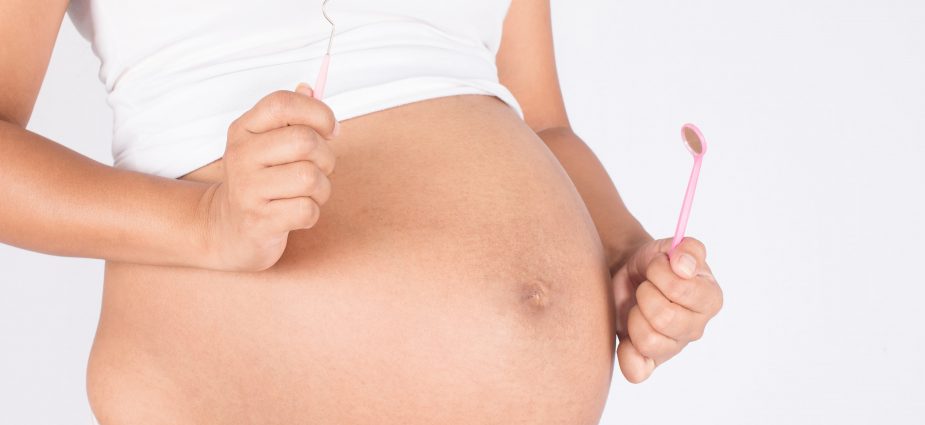
Pregnancy brings joy and transformation, but hormonal fluctuations can affect oral health, causing sensitive teeth. Increased estrogen and progesterone levels alter gum sensitivity, making everyday activities uncomfortable. Women experiencing tooth sensitivity during pregnancy can find relief through expert dental care. Consulting a knowledgeable dentist in Great Neck, NY, ensures personalized guidance on managing sensitivity, preventing complications, and maintaining optimal oral well-being.
What Causes Teeth Sensitivity During Pregnancy?
Pregnancy-related hormonal fluctuations, physical changes, and lifestyle factors contribute to tooth sensitivity.
Hormonal Changes
- Estrogen and progesterone surge: Alters oral health, increasing gum sensitivity.
- Relaxed gum ligaments: Hormonal changes reduce gum support for teeth.
Oral Health Issues
- Pregnancy gingivitis: Gum inflammation due to hormonal fluctuations.
- Periodontal disease: Advanced gum inflammation and infection.
- Tooth decay: Increased acidity and sugar cravings.
- Enamel erosion: Acid reflux and morning sickness damage enamel.
Lifestyle Factors
- Nutritional deficiencies: Inadequate calcium, vitamin D, and phosphorus intake.
- Morning sickness: Frequent vomiting exposes teeth to stomach acid.
- Sugar cravings: Increased sugar consumption contributes to tooth decay.
- Poor oral hygiene: Inadequate brushing, flossing, or dental check-ups.
- Stress and teeth grinding: Clenching jaws exacerbate sensitivity.
Other Factors
- Pre-existing dental issues: Unaddressed sensitivity or gum disease.
- Medication side effects: Certain medications exacerbate sensitivity.
- Genetic predisposition: Family history of oral health issues.
What Are The Symptoms Associated With Pregnancy-Related Teeth Sensitivity?
Pregnancy-related teeth sensitivity symptoms vary in severity and duration, disrupting daily life.
Common Symptoms
- Sharp pain: Brief, intense discomfort when consuming hot, cold, sweet, or acidic foods/drinks.
- Dull ache: Persistent, mild discomfort in teeth or gums.
- Gum swelling: Inflammation and sensitivity.
- Bleeding gums: Gentle brushing or flossing provokes bleeding.
- Tooth discomfort: Pain when biting, chewing, or tapping teeth.
Advanced Symptoms
- Prolonged pain: Sensitivity persisting after trigger removal.
- Spontaneous pain: Unprovoked sensitivity episodes.
- Gum recession: Exposed roots increase sensitivity.
- Tooth decay: Visible holes or discoloration.
Pregnancy-Specific Symptoms
- Increased sensitivity: Hormonal fluctuations enhance sensitivity.
- Gum inflammation: Pregnancy gingivitis.
- Loose teeth: Hormonal relaxation of gum ligaments.
How is Pregnancy-related Teeth Sensitivity Managed?
Effective management requires a combination of self-care, professional dental guidance, and preventative measures.
Self-Care Strategies
- Gentle oral hygiene: Soft-bristled toothbrush, mild toothpaste, and gentle brushing.
- Regular flossing: Prevents food buildup and gum inflammation.
- Fluoride mouthwash: Strengthens enamel and reduces sensitivity.
- Balanced diet: Calcium, vitamin D and phosphorus-rich foods support oral health.
- Sugar-free gum: Stimulates saliva production, neutralizing acids.
Professional Dental Care
- Prenatal dental check-ups: Schedule regular dental visits.
- Cleaning and polishing: Removes plaque, tartar, and surface stains.
- Fluoride varnish applications: Protective coating for teeth.
- Gum therapy: Addresses gum inflammation and recession.
- Restorative treatments: Fillings, crowns, or extractions as needed.
How to Prevent Teeth Sensitivity During Pregnancy?
Effective prevention requires a combination of good oral hygiene, dietary adjustments, and regular dental care.
Oral Hygiene Habits
- Brush gently: Use a soft-bristled toothbrush and mild toothpaste.
- Brush regularly: Twice daily for two minutes.
- Floss daily: Remove food particles and plaque.
- Use a fluoride mouthwash: Strengthen enamel and reduce sensitivity.
- Tongue scraping: Reduce bacteria and freshen your breath.
Dietary Alterations
- Balanced diet: Include calcium, vitamin D, and phosphorus-rich foods.
- Limit sugary and acidic foods: Minimize frequency and duration.
- Avoid frequent snacking: Reduce sugar exposure.
- Stay hydrated: Drink plenty of water.
Regular Dental Care
- Prenatal dental check-ups: Schedule regular dental visits.
- Cleaning and polishing: Removes plaque, tartar, and surface stains.
- Fluoride varnish applications: Protective coating for teeth.
- Gum therapy: Addresses gum inflammation and recession.
Additional Prevention Measures
- Desensitizing toothpaste: Use toothpaste specifically formulated for sensitivity relief.
- Avoid teeth grinding and clenching: Wear a mouthguard if necessary.
- Monitor gum health: Watch for signs of gingivitis.
- Avoid smoking and tobacco: Reduce stain risk and promote oral health.
Takeaway
Teeth sensitivity during pregnancy is a common and manageable condition. Hormonal fluctuations, gum inflammation, and dietary factors contribute to sensitivity. Practicing good oral hygiene, balancing dietary intake, and seeking regular dental care prevents and alleviates sensitivity. Prompt dental consultations address severe symptoms, ensuring optimal oral health. Pregnancy-specific considerations, such as scheduling prenatal dental visits and avoiding non-emergency treatments in the third trimester, support overall well-being.






